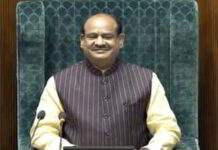Absolute numbers: On the ECI and faith in the process
The ECI should do everything to reinforce people’s faith in the democratic process
A total of 58 Lok Sabha seats in eight States and Union Territories voted on Saturday in the sixth and penultimate phase of the general election 2024. With this, polling has been completed in 28 States and Union Territories, in 486 constituencies. Voting is also over for 105 Assembly constituencies of Odisha. The last phase of polling will be on June 1 for the remaining 57 seats and counting of votes will take place on June 4. Sporadic incidents of violence were reported from West Bengal which also reported the highest polling percentage at 79.47. In Jammu and Kashmir, the Anantnag-Rajouri seat recorded a turnout of 54.30%, an impressive high. Urban apathy continued in the seven seats of Delhi which went to the polls with just 57.67% of the electorate turning out to vote. The searing heat wave prevailing in north India did not help matters. The Election Commission of India (ECI) released, for the first time in this general election, the absolute number of votes cast in each constituency for the first five phases. The ECI came out with the data a day after the Supreme Court of India refused to direct the commission to disclose details of Form 17C, which contains this data at the booth level and is handed out to all the polling agents of the candidates.
The ECI has alleged, inappropriately, there to be a “pattern of false narratives and mischievous design to vitiate electoral process”. It is true that concerns have been raised by several actors about the electoral process, and it is possible that a part of it could be due to ignorance or even out of mischief. A mature and appropriate response expected of the body that is tasked with overseeing the largest democratic exercise on the planet is to provide information to the public that removes such concerns. The commission opposed the disclosure of Form 17C in the Supreme Court — all the while insinuating at a conspiracy to vitiate the electoral process. Complaints brought to its attention by anyone should be addressed in a manner that behoves a robust democracy. It is indeed the duty of the ECI to ensure that the electoral process is not vitiated, and the best way to achieve it is to ensure the maximum transparency that is administratively possible. The ECI has done well by publishing the data on the absolute number of voters, and it could proactively look for more measures that could reinforce public faith in the process and in its own integrity.
















